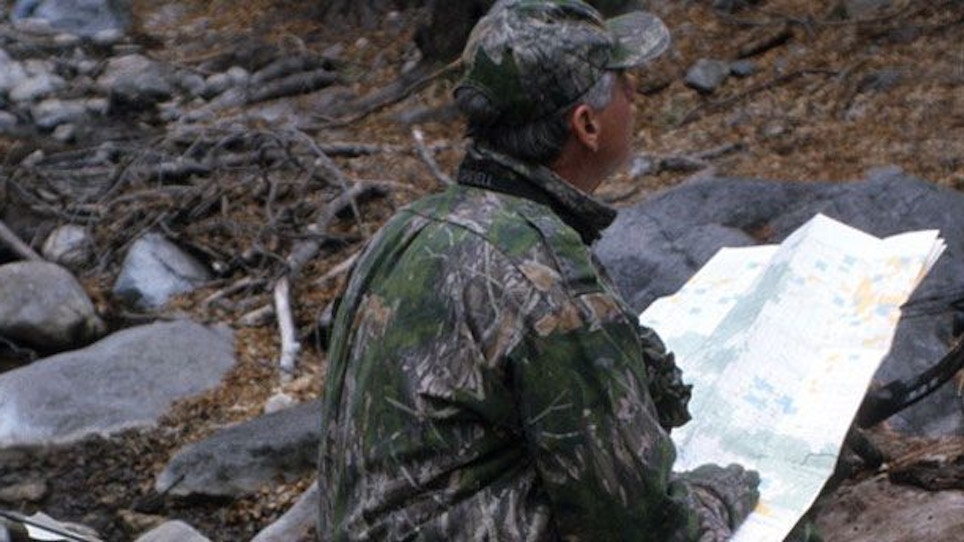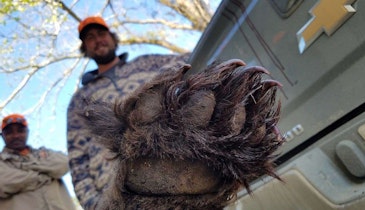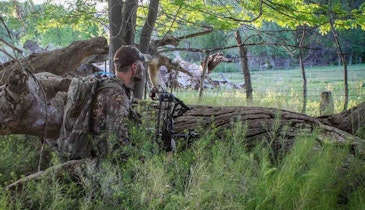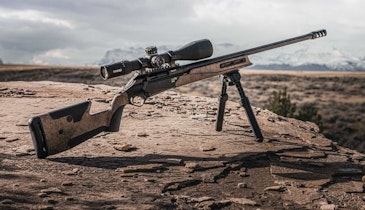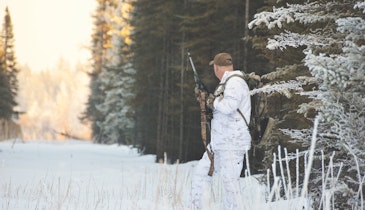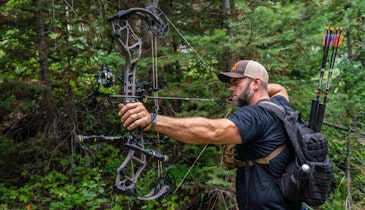Getting lost is easier than you think. It creates anxiety and wastes precious hunting time. This can be as simple as being temporarily turned around or, worse, spending the night out in a life-threatening situation.
Mark Your Way
Darkness or fog can easily hide a tidy backpack camp, parked truck, or ATV. It’s natural to be excited and gung-ho when heading out to hunt, but before you start, memorize key landmarks and terrain features around camp or transportation. Mark trails, ridgelines, or fences with a pile of rocks or surveyor’s tape, making it easier to locate when returning. Stash keys at the vehicle where everyone in your party can locate them during an emergency. If you should reach camp or the vehicle before a hunting partner does, start a fire, or light a lantern to make it easier for them to locate you after dark.
In flat, featureless country, surveyor’s tape saves time and worry. Mark key locations such as creek crossings, canyon mouths, or game trails that find your way. (Remove it when you’re done.)
Don’t Forget A Compass & Map
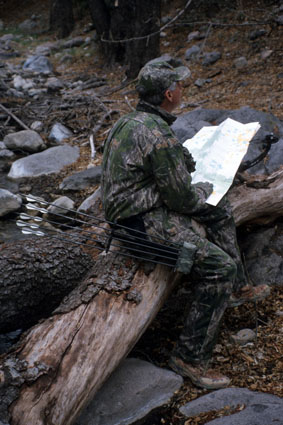 In unfamiliar country you should always carry, regularly consult, and trust a quality compass. Staying on path is simple if you combine this with USGS topographical maps and basic map-reading skills. Elevation contour lines provide a schematic of terrain; closely spaced contours indicate steeper ground, contours farther apart indicate flatter ground. Circles or closed contours show hilltops. Comparing a map’s terrain features to actual topography makes it easier to place yourself.
In unfamiliar country you should always carry, regularly consult, and trust a quality compass. Staying on path is simple if you combine this with USGS topographical maps and basic map-reading skills. Elevation contour lines provide a schematic of terrain; closely spaced contours indicate steeper ground, contours farther apart indicate flatter ground. Circles or closed contours show hilltops. Comparing a map’s terrain features to actual topography makes it easier to place yourself.
Know How To Use Your GPS Device
Of course GPS—Global Positioning System devices—now pinpoint location via satellite. You can also store site locations that you want to find again in the device. Three important rules of thumb here:
1. Carry extra batteries.
2. Learn to use your unit thoroughly, and carry the instruction manual.
3. Don’t depend on it solely in life-threatening situations.
Find a unit that makes sense to you. Some are more difficult to operate than others. Cheap units operating on fewer “channels,” receiving fewer satellites, may be fully dependable 98 percent of the time. But that may change under the worst weather conditions or in extreme terrain—when you need it most. Keep your GPS dry and protected to assure that it operates you need it.
Bring A Survival Kit
Unless you are a homing pigeon, always enter the woods assuming you’ll get lost. Matches plus a butane lighter and fire starter should be part of your kit. A basic survival space blanket keeps you alive on a cold night or dry during a downpour. Carry enough food for a night out, and make sure you have water or a way to create safe water. You’ll stay warmer with fuel and proper hydration. These are bare necessities. Parachute cord and a 10x10-foot plastic sheet create quick shelter against cutting wind, rain, or snow—all sure causes of fatal hypothermia.
Always let someone know where you will be and when you expect to return. If you don’t return on schedule, someone can send help.
